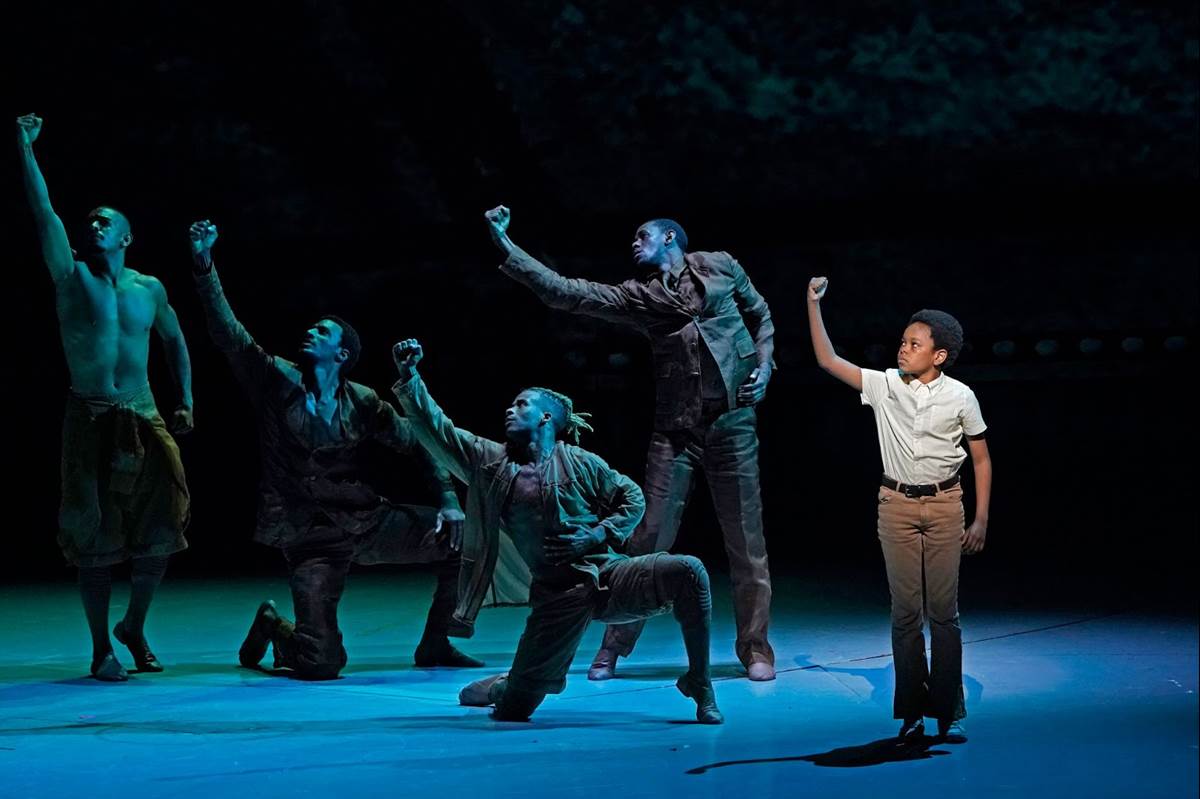The Making of “Great Performances at the Met: Fire Shut Up in My Bones” on PBS
One of the highlights of the 16th season of Great Performances at the Met on PBS is Fire Shut Up in My Bones. Adapted from the 2014 memoir of the same name by journalist Charles M. Blow, the show chronicles Charles’ upbringing in the South and how he was affected in his adult life by sexual abuse endured as a child by a family member. “I have only seen it once in St. Louis and once in New York,” Charles M. Blow revealed during a TCA press conference to promote the filmed performance. “Iit is not something that a person who has dealt with this sort of thing can stay in. I don't think it's healthy to stay in it… The only reason I ever wrote about it was I thought it would be helpful for other people who might be going through the same things and that I owed the world that because only I could write what happened to me. But I had to dig up something that was buried in order to do that.”

(Courtesy of The Metropolitan Opera)
First performed in 2019 in St. Louis, Metropolitan Opera general manager Peter Gelb explained why he sought out this project. “During our long shutdown, when the Met was closed for 18 months, we thought a lot about how we could best serve our audiences and the art form going forward. We made the determination, of course, to produce Fire Shut Up in My Bones several years earlier, but we were determined, with our return, to pack our schedule to more new works and more new experiences that would be much more meaningful and relevant to a modern audience. That is the Met's path forward.”
During the show’s development, Charles M. Blow took part in a creative boot camp with Grammy-winning composer Terence Blanchard. “It personalized everything because he gave us insight into the story,” the composer shared, adding that he connected to the story as a Louisiana native. “Reading it is one thing, but hearing the rhythm of his voice and the inflections, the accents and all of those things really started to bring it to life to me.” Also at the boot camp was librettist (the writer of an opera) Kasi Lemmons. “Kasi is a very detailed person, and I felt sorry for Charles because wherever Charles walked, Kasi was two steps behind him with a pad and pencil, jotting down notes. It was a great process because I knew everybody was invested 150 percent in the process of telling the story, because not only is it a powerful story and it's Charles's personal story, but it's an important one for a lot of people to hear. I wanted to do the story because Charles, his life as a successful journalist and writer is a testament to his strength in coming through something like this. I think telling this story with still having him around and being able to do interviews could be a lightning rod of hope for a lot of people who are going through these same or similar situations.”
“I got a lot of information just about Charles that wasn't necessarily in the memoir,” Kasi Lemmons revealed. “I was asking him a lot of questions and following him around with a pencil and a pad. And that was really the beginning of just a deeper understanding. And then I kind of took it off by myself and tried to structure a libretto, which I didn't have any experience in doing, but I kind of looked at it like I would write a screenplay, almost, or a play, and looked at it as drama and poetry and then started doing workshops with Terence.”
From page to stage to screen, Great Performances at the Met presents Fire Shut Up in My Bones, their first production by a Black composer, tonight at 9/8c on your local PBS station.


